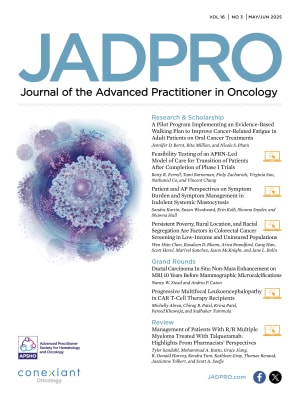Abstract
Abstract
Bruton’s tyrosine kinase (BTK) is expressed in B-cell malignancies, playing an important role in B-cell receptor (BCR) signaling and offering a promising new strategy for the development of targeted drugs. Malignant B cells in mantle cell lymphoma (MCL) and chronic lymphocytic leukemia (CLL) rely on BCR signaling pathways for cell survival, proliferation, adhesion, and migration. Ibrutinib, a first-in-class orally bioavailable, small-molecule inhibitor of BTK, was approved in the United States for the treatment of patients with relapsed or refractory MCL and CLL, as well as patients with CLL who have deletion 17p. Ibrutinib has been shown to prevent proliferation and induce apoptosis of malignant B cells while also blocking cellular responses to survival stimuli from the tumor microenvironment. Ibrutinib has a favorable risk-benefit profile and is effective in patients with relapsed or refractory MCL and CLL, for whom treatment options are limited. Advanced oncology providers play a critical role in explaining the mechanism of action of this novel oral agent, educating patients and caregivers on successful self-administration of ibrutinib within the clinical setting, as well as monitoring and managing potential side effects.





